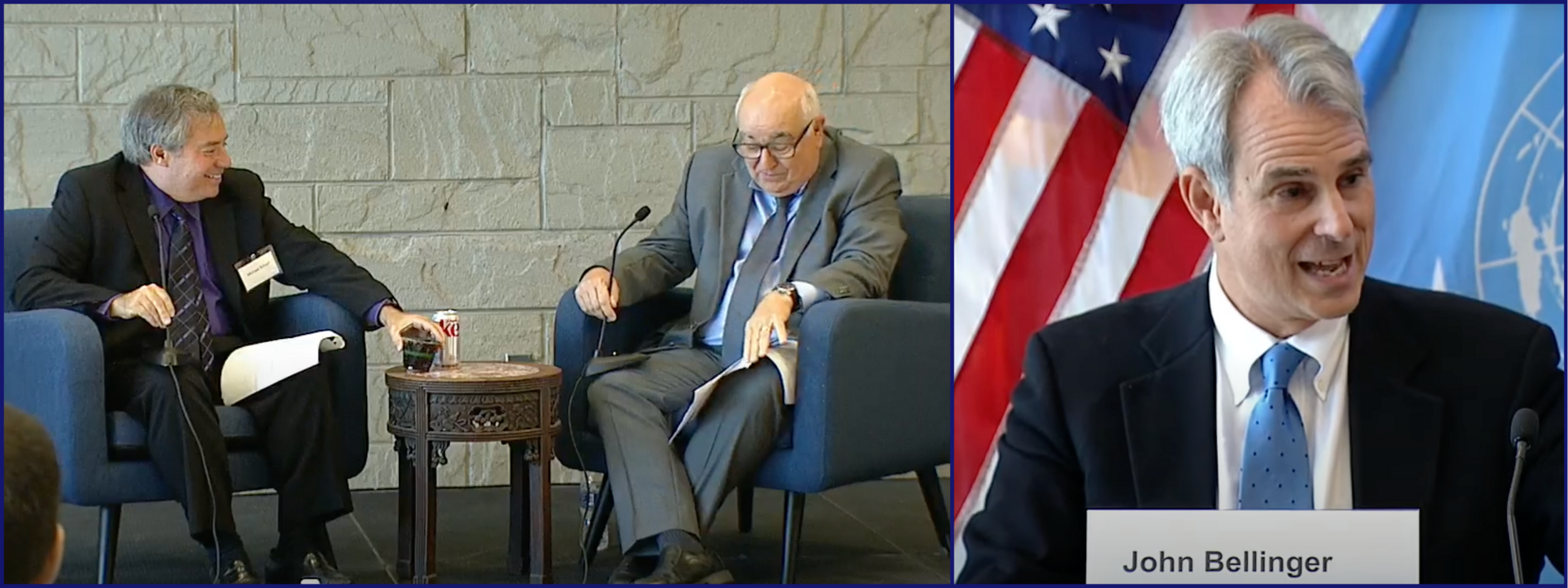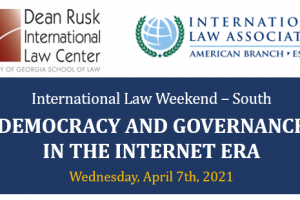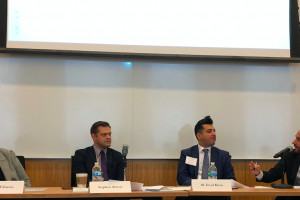ABILA Co-Sponsors Experts Meeting on the Need to Update the Laws of War – White Paper Published

L: Michael P. Scharf and James Johnson. R: John Bellinger.
With a total of 196 state parties, no other international treaties are as widely ratified as the four 1949 Geneva Conventions on the Laws of War and their Additional Protocols. But these critical treaties are showing their age. The rules and principles they established for the conduct of war were created before the advent of the computer, space flight, the internet, artificial intelligence, autonomous weapons, and other modern technologies that have transformed how contemporary wars are fought.
On the 75th anniversary of the Geneva Conventions, the ABILA co-sponsored a ground-breaking meeting of thirty leading experts on the Laws of War to consider whether there is a need to update these laws to address the challenges of 21st-century warfare and how that could best be accomplished. The experts participated in a day-long meeting at Case Western Reserve University School of Law on Sept. 26, 2024, and three follow-up meetings over Zoom on Oct. 31, Nov. 7, and Nov. 14. The meetings were chaired by ABILA President Michael P. Scharf and included several members of the ABILA Board.
After substantial debate, the experts reached a consensus on a White Paper, which is now available on SSRN and will be published in Volume 57 of the Case Western Reserve Journal of International Law in May. The first part of the report identifies selected areas that the participating experts concluded could benefit from updated interpretation, clarification, or new rules. The second part examines the pros and cons of the different approaches to pursuing these updates.
“This White Paper is intended as a call to action and roadmap for evolving the Laws of War to respond to the challenges of 21st-century warfare,” says Scharf. “In light of the caliber of the participating experts, we believe this initiative will help catalyze a movement to update this vital area of law.”


